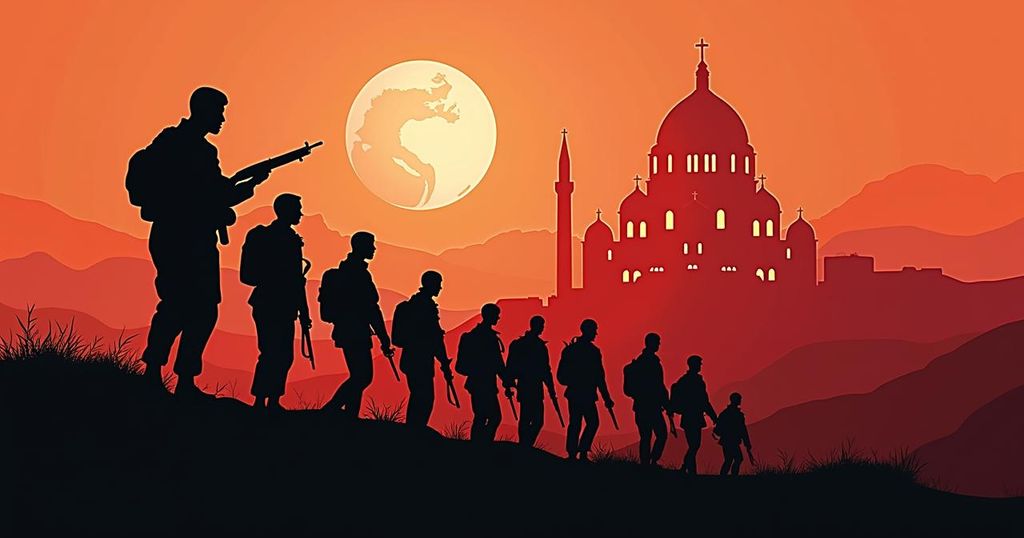Scrutiny of the Tunisian Army’s Increasing Political Influence Ahead of Presidential Election

The Tunisian army’s increasing role in political affairs has alarmed observers ahead of the presidential election, underscoring a shift from historical marginalization to a significant political presence under President Kais Saied’s administration. This development raises critical questions about the military’s influence on governance and its commitment to democracy as the election approaches amid accusations of authoritarianism.
The growing influence of the Tunisian army in political affairs has become a subject of significant concern as the country approaches its presidential election. Historically marginalized under the leadership of Presidents Habib Bourguiba and Zine el-Abidine Ben Ali, the military has gained prominence since the election of Kais Saied in 2019. Saied’s administration has sought to strengthen ties with the military, which played a crucial role during his assertive consolidation of power in July 2021. This has included unprecedented appointments of military officers to cabinet positions, raising alarms about the military’s expanded involvement in governance. The political landscape in Tunisia differs from that of other regional nations, as the military has largely refrained from direct political engagement, primarily owing to its historical context under Bourguiba, who enforced a strict separation between military and state affairs. This arrangement persisted through Ben Ali’s regime, under which the military’s autonomy was justly preserved to prevent any threats to his rule. However, the post-revolutionary period witnessed a resurgence in the military’s significance, primarily as a supporter of democratic processes, although this support has increasingly been interpreted as an underlying political agenda under Saied’s government. The appointments of military figures to ministerial roles have incited discussions regarding the implications of Saied’s reliance on military support for his hold on power. As the nation approaches the presidential election scheduled for October 6, questions arise about the army’s potential stance, particularly concerning Saied’s controversial tactics to suppress dissent and prevent other candidates from participating in the electoral process. The military’s constitutionally mandated role is to protect the republican form of government, which raises concerns regarding its allegiance in the face of growing authoritarianism. Discontent among military factions towards certain political decisions may signal a pivotal turning point in the army’s relationship with Saied’s administration. Observers remain vigilant regarding how the military will navigate these political challenges, as the integrity of the forthcoming elections hangs in the balance. This evolving dynamic ensures that the military’s role in Tunisia’s political framework will remain a focal point of discussion as officials and civilians alike grapple with the implications of increased militarization in state affairs.
The background context surrounding the Tunisian army’s role in politics must be understood in light of the historical relationship between the military and the government since the country’s independence in 1956. Initially, the military was strictly confined to non-political roles under Bourguiba, who was influenced by the French political model and sought to maintain democratic practices while keeping military leaders at bay. During Ben Ali’s presidency, the military continued to face marginalization, particularly highlighted by events that labeled military officers as potential threats to national security. Post-2011, as Tunisia transitioned to a democracy following the revolution that ousted Ben Ali, the military began to rebuild its reputation as a protector of democratic principles. Over the past decade, the military has gradually expanded its influence, particularly under Kais Saied’s presidency. Saied’s approach to governance has dramatically affected the military’s role, as he seeks to consolidate power while enlisting military support for maintaining stability and his political agenda.
In conclusion, the growing involvement of the Tunisian army in the political sphere raises substantial concerns about the balance of power as the nation approaches its presidential elections. The historical precedent of military marginalization juxtaposed with its recent rise to political prominence under Kais Saied illustrates a complex and precarious dynamic. As Saied reinforces military ties while simultaneously silencing opposition, the true extent of the army’s influence and its potential commitment to protecting democratic governance will be critical to observe in the unfolding political landscape.
Original Source: www.middleeasteye.net







